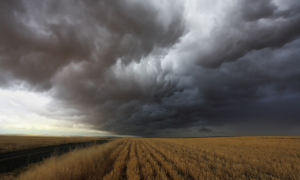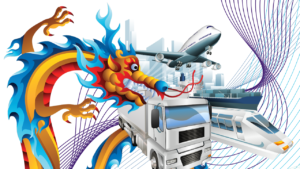Recently the Economist published an article about Unilever, the world’s second largest consumer goods company, and how it nearly lost its considerable advantage in emerging markets [“The Legacy that got left on the shelf,” 2 February 2008]. It provides some good lessons for companies desiring to expand their markets by courting consumers in developing countries.
“When a consumer-goods company casts around for the best growth prospects, rarely does anything look more promising than emerging economies. These markets are growing so rapidly that within just two years they will account for half of all the world’s consumer spending, estimates Harish Manwani, head of the Asian and African businesses of Unilever, a giant of the world’s consumer-goods industries. But even with more than a century of experience in some of these countries, Unilever tripped up. Few companies have had the head start in places like Africa, China, India and Latin America that Unilever enjoyed. Yet despite the Anglo-Dutch giant’s formidable range of products and unprecedented depth of local knowledge, when rivals began to push harder its empire came under threat. Unilever was forced to re-examine its legacy and to act on what it found. Now the results are coming through.”
Unilever’s brands are well known in the developed world — in addition to soap (Lifebuoy), it sells Knorr soup, Hellmann’s mayonnaise, and Lipton tea. It’s come a long way from its humble beginning (a merger between a margarine producer and a soap maker), but its ancestral roots reach all the way back to the beginning of modern globalization.
“Unilever was born in 1930 in one of the largest mergers of its time, between Margarine Unie, a Dutch producer of margarine, and Lever Brothers, a British soapmaker. There was industrial logic in this because both businesses shared a common ingredient, palm oil: growing it in overseas plantations and importing it would benefit from economies of scale. Yet the histories of both firms stretch back into the 19th century, to when they dispatched young men on ships from Liverpool and Rotterdam to faraway places. The young men were under instruction to build businesses. They set up plantations, built factories and established distribution and supply systems. With long lines of communication, these ventures invariably developed as and how they could, often with great independence.”
As that description connotes, the first age of globalization was inextricably connected with colonization. The merged company, however, was able to maintain its deep local knowledge and connections without getting tarred with colonization’s brush. One would have thought they could have turned this asset into a significant competitive advantage — but, according the Economist, it didn’t. When Unilever realized it was slipping, it began searching for the reasons why. The answer surprised them.
“The reason was that Unilever’s great strength—its strong roots in local markets—had turned into its biggest weakness. In an age of globalisation, Unilever’s local bosses had become kings who took important strategic decisions autonomously. There was duplication and even triplication of corporate structures, creating unnecessary complications. All this weighed heavily on the company, so that it was not able to exploit its size and geographical reach as well as it should have done.”
In other words, Unilever needed to transform into what IBM CEO Sam Palmisano calls the “globally integrated enterprise” or what I have referred to as a Resilient Enterprise. I established Enterra Solutions® primarily to help businesses achieve this goal. I created a new Enterprise Resilience Management Methodology® that can strategically align an organization by identifying the critical assets and enabling business processes that are key for sustainability and competitiveness. It then identifies the security, compliance and performance rules or policies that apply to those assets and processes. The organization is then transformed by the fusion of those business processes and best business practices or rules sets into automated business processes that are dynamically updatable to changing management and market requirements. For the first time best business practices are infused into technology in a dynamically updatable fashion –- creating an advanced integrated management and technology platform for organizations competing in international marketplaces. The trick for Unilever was to achieve a globally integrated enterprise status without destroying its ability to tailor products for local markets.
“This is a necessity for any multinational selling to the consumer. Even McDonald’s and Starbucks, which appear to sell the same stuff everywhere, in fact vary their offerings from place to place. In many instances, Unilever’s attention to detail has worked well. For instance, Indian women often oil their hair before washing it, so Western shampoos that do not remove the oil have not sold well. Unilever reformulated its shampoo for India and ditched the conditioner. But Unilever sometimes went too far. It used different formulations for shampoo in Hong Kong and mainland China, even though the hair and washing habits of most people in both markets are almost identical. Unilever would also sometimes vary the packaging and marketing in similar markets of even its most commoditised products, such as deodorants.”
These apparent anomalies resulted from the fact that Unilever was not globally integrated.
“‘We tended to exaggerate complexity,’ says Simon Clift, [Unilever’s] chief marketing officer. This complexity continued at the operating level. In China, says [Patrick Cescau, Unilever’s CEO], Unilever had three companies. Each had its own chairman, who in turn reported to two regional presidents, who answered to two members of the executive committee.”
The problem wasn’t just in China and other emerging markets it was a holdover from the original merger. In Unilever’s case, global integration began at home.
“Change had to begin at the top. Listed on both the London and Amsterdam stock exchanges, Unilever used to be run almost by committee, with two joint chairmen, one appointed from Britain and the other from the Netherlands. In February 2005 its management structure was altered: Patrick Cescau, the joint chairman from the British side, became the sole chief executive. Mr Cescau, a soft-spoken Frenchman, is a Unilever veteran and may seem an unlikely revolutionary. Nevertheless, under him a more unified company has been taking shape. And it seems all the better for it. In 2006 sales grew by 3.2% to €39.6 billion ($49.7 billion) with net profits of €5 billion. The trend is continuing. Analysts estimate that sales rose by more than 5% last year (the company is due to report its annual results on February 7th), which would be Unilever’s best performance for years. The company’s improvement ‘shows that our business model has integrity,’ says Mr Cescau in his unflorid way. So Unilever seems to have got itself back on course. But the battle for the emerging-market consumer remains far from straightforward. And it is far from over.”
The same integration effort took place in China to overcome the complexity challenges noted above.
“Today one person is in charge of China across all divisions. Unilever’s China business, with a turnover of around €600m in 2006, is now growing by 20-30% annually, compared with 8-9% before the changes were made. There were similar examples throughout the company, with hundreds of different policies for things like company cars and human resources.”
The article points out that all this integration was painful. Unilever’s infrastructure was so redundant that tens of thousands of jobs had to be eliminated and dozens of factories closed. The upside, of course, is that the company is likely to remain profitable, especially in emerging markets.
“The possibilities in some emerging markets are huge. For instance, the company is the biggest maker of deodorants in the world, with brands including Rexona, Shields, Dove, Lynx, Axe and Sure. But only about half the world uses deodorants. Three decades ago deodorants were almost impossible to find in Brazilian shops, but Unilever’s sales there are now worth €400m a year. In 1999 Unilever had almost half of the Argentine market for deodorants; by 2006 its share had increased to more than 70%. Potentially, other markets could soon smell as sweet. Only seven out of every 100 Asians use deodorants, the company reckons, while many Russians and others use them only for special occasions, such as weddings. The home and personal-care division of Unilever accounts for 45% of the group’s sales and does about two-thirds of its business in emerging economies. It also represents the bulk of the company’s business in India. Yet Doug Baillie, chairman of Hindustan Unilever, which is listed separately on the Mumbai stock exchange, is also looking at other opportunities. He intends to push particularly hard into food. The Indian market is worth $300 billion a year, but little of this is accounted for by processed food, Unilever’s speciality.”
The company has also successfully managed to use its local knowledge to tailor its products (and product size) for the various markets in which they are sold. India is a good example.
“Hindustan Unilever is one of the jewels in the company’s emerging-market operations. It is India’s biggest consumer-goods company and biggest advertiser. One of its strengths is its ability to cater to all segments of the population by adapting products and prices. In laundry detergents, for instance, it makes Surf Excel for the affluent, Rin for the ‘aspiring’ class and Wheel for poorer people, the vast majority of whom live in the countryside. It sells 70% of its shampoo in one-use sachets for the equivalent of a couple of cents. Though Western consumers might find big bottles better value, India’s poor simply cannot afford anything more than small quantities.”
Unilever, like many companies working in emerging markets, discover that becoming socially responsible is important to strengthening the consumer class that buys their products. As quality of life rises, profits tend to increase.
“Social and political issues also matter more. And there is always more to learn. In South Africa, where Unilever has operated for more than 100 years, it recently worked with Ethan Kapstein, a professor of sustainable development at INSEAD, a French business school, to consider the impact that its operations are having on that country. The result has been a report designed to help Unilever think harder about things like training, medical care, pensions, skills transfer, black empowerment initiatives and environmental standards. Unilever has 4,000 employees and 3,000 suppliers in South Africa. Indirectly, it found that some 100,000 jobs depend on the company, making it responsible for the equivalent of 0.8% of total South African employment. The direct and indirect effects of its operations provide almost 0.9% of GDP.”
Unilever can only think about becoming more socially responsible because it is profitable. The Economist concludes “with the balance of the world economy shifting, Unilever’s head start in emerging markets is a valuable advantage, not least because many of its brands are already well-known there. For instance, Lifebuoy, its disinfectant soap, is one of the world’s oldest global brands. So if it can make even more out of its legacy, Unilever will be a fearsome competitor.” That’s what becoming a globally integrated enterprise is all about.




